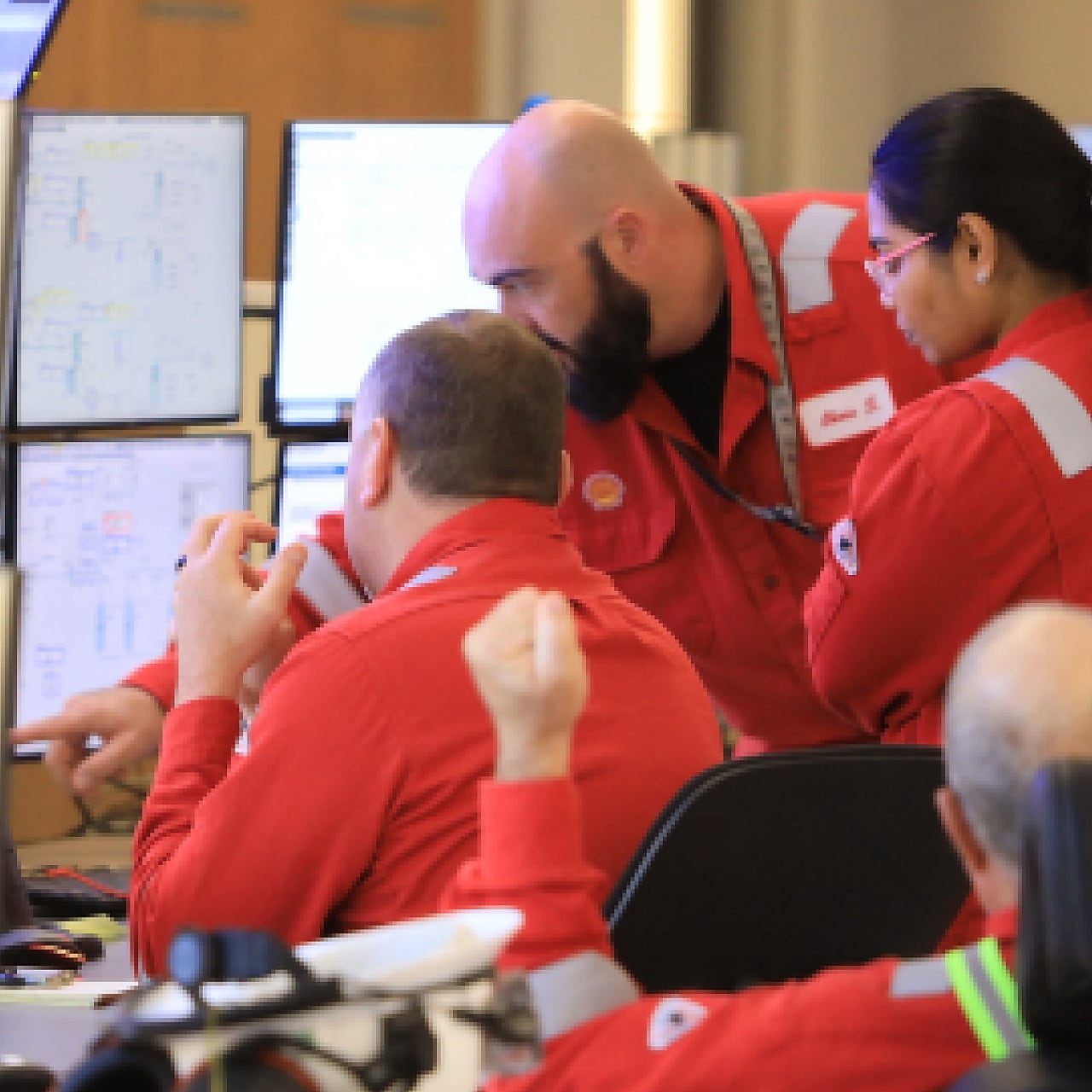
How Does The Plastic Circular Economy Work?
By changing the course of end-of-life plastics from disposal to value regeneration, we can displace virgin raw materials with circular molecules.
We believe that one of the keys to successful (Real)lationships is sharing insights and best practices. So let’s get real about what we’ve learned about the state of the circular economy, how we’re driving change, and what it means for you and your business.
What is the circular economy?
Today, we follow a largely linear economy where plastic is made and then disposed of or recycled.[1] A circular economy means using and recycling plastic via a closed-loop system, rather than producing plastic to be used once and discarded. To realize the vision of a circular economy, the thoughtful stewardship of valuable materials is required to keep molecules "in-play" with advanced recycling, along with continued usage of mechanical recycling.
What is the plastic waste issue?
Plastics offer vital benefits to society. However, in some places, waste management and traditional recycling infrastructure don’t exist, or end-of-life plastic is not managed appropriately within existing programs. Additionally, even in places with robust linear waste management systems, too much end-of-life plastic ends up incinerated or in landfills.
Plastics do not belong in our oceans, rivers, or landscapes. They do belong in homes, hospitals, schools, and businesses, where, every day, they deliver benefits to hundreds of millions of people around the world.
What is fueling the shift towards plastic circularity?
Governments in many places are requiring higher rates of plastic recycling and the use of more recycled content, as well as investment in recycling systems. For example, in the United States, more than 20% of Americans live in states with some form of Expanded Producer Responsibility (EPR) laws[2]. These laws mandate producers and brands pay for local recycling programs, as well as incentivize reducing, reusing, and recycling over disposal. This number is likely to increase as other states pass their own EPR laws, and brands are already adjusting their policies to meet existing and anticipated regulations. Similarly, in the European Union, the Single-Use Plastics Directive (SUPD) and Packaging and Packaging Waste Regulation (PPWR) aim to set standards for minimum recycled content and EPR.
But legislation isn’t the only driver: converters and brand owners are making pledges on plastics, and consumers expect brands to make it easy for them to make more sustainable choices.

Stay Ahead of Industry Trends
Supply chain challenges continue to affect our industry and the food and beverage market is growing at a rapid pace. Learn how to deal with these changes in our free report.
What is Shell doing about plastic waste?
Our responses include:
- Displacing virgin raw materials with chemical feedstock from advanced recycling: Using a technique called pyrolysis, end-of-life plastic is used to produce chemicals that can be used in place of virgin petrochemical raw materials. Thanks to a landmark deal with Freepoint Eco-Systems, Shell Polymers has secured up to 130 million pounds of feedstock derived from recycled plastic that we can use in place of virgin raw materials in our integrated value chain.
- Improving packaging sustainability: Shell Lubricants, which makes and sells engine and industrial oils, is reducing, reusing and recycling packaging across its supply chains and exploring different and more sustainable packaging options.
- Working with converters: Shell Polymers actively works with converters to develop plastic packaging that is thinner, stronger, and designed for recyclability.
- Collaborating to tackle plastic waste: Shell is a founding member of the Alliance to End Plastic Waste. This not-for-profit organization has committed over a quarter of a billion dollars to projects to help end plastic waste in the environment and strengthen the circular economy.
Does the new Shell Polymers plant have practices that promote plastic circularity?
Yes! At our polyethylene plant in Monaca, Pennsylvania, we have pioneered several circularity-related features, including:
- 10 miles of underground piping that has a high content of recycled plastic; and
- roads that contain waste plastic equivalent to three million grocery bags.
In addition, Shell Polymers is collaborating with local groups to encourage education and more plastics collection and recycling.
How are chemicals produced from end-of-life plastic?
- First, post-use plastic is collected and sorted.
- Then it is broken down at a molecular level using a process called pyrolysis, which produces a hydrocarbon liquid.
- This liquid is then co-processed at a refinery or chemical facility in place of similar hydrocarbon liquids derived from fossil raw materials. The result is a range of base chemicals that can be utilized across the petrochemical value chain, including in the production of plastic resin.
These circular chemicals have the same properties as chemicals made from virgin raw materials and require no changes to converters’ manufacturing processes. With the application of market-based accounting systems like mass balance accounting and third-party certification, certified circular materials can be exchanged across the value chain, from pyrolysis oil all the way through to the final product.
Is Shell producing chemicals from end-of-life plastic?
Yes! Shell has been developing technologies to process pyrolysis oil made from end-of-life plastics at Norco in Louisiana, USA. Since 2019, Shell has partnered with leaders in advanced recycling to build a diverse supply network, with agreements for pyrolysis oil from end-of-life plastic.
Shell’s intention is to continue to invest in and scale up this technology.
Shell has also invested in a plastic-waste-to-chemical technology company BlueAlp. Together, Shell and BlueAlp have built a “market development upgrader,” or MDU, at Shell Chemicals Park Moerdijk in the Netherlands that enables large-scale use of circular raw materials.
So, which companies is Shell partnering with to advance plastics circularity?
We’re collaborating across the end-of-life plastic value chain, including with:
- BlueAlp, which is developing, scaling up, and deploying BlueAlp’s plastic waste to chemicals feedstock technology in Europe;
- Dialog Group Berhad, which is exploring building a unit to produce pyrolysis oil derived from plastic waste;
- Remondis, which is involved in the collection and sorting of waste including plastic and biomass;
- Pryme, which will supply pyrolysis oil to Shell’s chemicals plants in Europe; and
- Nexus Circular, Freepoint Eco-Systems and Alterra Energy, which supply pyrolysis oil to Shell’s chemicals plant in Louisiana, USA.
What type of recycling is Shell focusing on?
There are broadly three types of recycling: closed loop, mechanical recycling, and advanced recycling.
- Closed Loop uses non-chemical means to return a pre-consumer or post-consumer end-of-life plastic back to the original intended use. For example, PET beverage bottles that are returned and reprocessed back into PET beverage bottles, or regrinding scrap from an extruder back into the original process, function as closed loop recycling. The key identifier is that the “use” of the recycled material is the same as the original “use” of the source material. As such, closed loop system end markets are limited to the original end market of the source material.
- Mechanical recycling uses grinding, washing, sorting, and reprocessing to repurpose end-of-life plastic material. Since there is no chemical alteration, the original resin’s chemical and physical properties present in the recovered material are either preserved or downgraded during the recycling process. As such, end markets for mechanical recycling are limited to applications that utilize a similar resin, with similar resin properties to the recovered material, or in a downgraded, mixed resin application. To reach end markets with similar resins and properties, recovered materials must be sorted and preprocessed to a high level of commodity purity with low contamination.
- Advanced recycling is a general term for various processes that alter the chemical structure of recovered material. Chemical alteration is intended to revert end-of-life plastic back into basic hydrocarbon raw materials that can be used in place of virgin equivalents at various points in the pre-resin manufacturing supply chain. In particular, pyrolysis uses energy in an oxygen-free environment, generally in the presence of a catalyst, to convert mixed end-of-life plastic into liquid and gaseous hydrocarbon secondary materials that can be used as feedstock for various refining and chemical industry processes. This approach creates new value from recycled materials and broadens the connection to a vast amount of end markets–key principles of the plastic circular economy.
Although Shell is working on a number of technologies and initiatives that reduce and reuse plastic, our primary focus is on advanced recycling as a way to accelerate plastic circularity. It’s important to note that all forms of recycling are complementary, not competitive. Closed loop and mechanical recycling have generally effective supply chains from recovery to recycled content reintroduction at the last stages of product manufacturing at established end markets. Advanced recycling can be co-processed in existing petrochemical supply chains, connecting recycled materials to broader end markets. Where closed loop and mechanical recycling are more limited by the purity and quality of recovered materials, advanced recycling can utilize dirtier, mixed resin bales as feedstock for pyrolysis oil.
What does this mean for us?
The circular economy has concrete operational and business impacts on everyone.
- For brands and end markets, more companies, through more applications, can access recycled materials in their supply chain via mass-balanced certified circular plastics.
- For converters, advanced recycling and co-processing enable access to certified circular resins that can be used in existing lines. This access comes without the significant equipment and skill overhauls that alternative materials might require, and without sacrificing product quality or performance.
- For consumers, third-party certified circular products and associated claims provide transparency and assurance that their purchasing decisions are advancing the circular economy.


